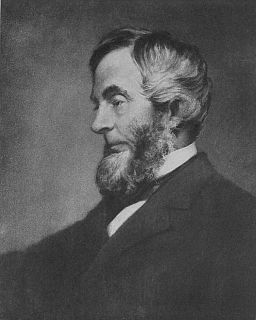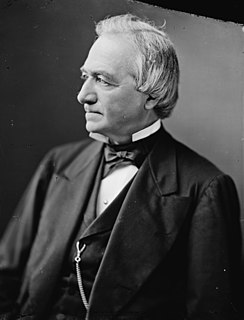A Quote by Oliver Cromwell
I was by birth a gentleman, living neither in any considerable height, nor yet in obscurity. I have been called to several employments in the nation - to serve in parliaments, - and ( because I would not be over tedious ) I did endeavour to discharge the duty of an honest man in those services, to God, and his people's interest, and of the commonwealth; having, when time was, a competent acceptation in the hearts of men, and some evidence thereof.
Related Quotes
What I mean by Socialism is a condition of society in which there should be neither rich nor poor, neither master nor master's man, neither idle nor overworked, neither brainslack brain workers, nor heartsick hand workers, in a word, in which all men would be living in equality of condition, and would manage their affairs unwastefully, and with the full consciousness that harm to one would mean harm to all - the realisation at last of the meaning of the word 'commonwealth.'
Nothing can separate you from His love, absolutely nothing, neither death nor life, nor angels, nor principalities, nor powers, nor things present, nor things to come, nor height, nor depth, nor any other creature... We do not need to beg Him to bless us, He simply cannot help it. Therefore God is enough! God is enough for time, God is enough for eternity. God is enough!
A great man is a gift, in some measure a revelation of God. A great man, living for high ends, is the divinest thing that can be seen on earth. The value and interest of history are derived chiefly from the lives and services of the eminent men whom it commemorates. Indeed, without these, there would be no such thing as history, and the progress of a nation would be little worth recording, as the march of a trading caravan across a desert.
We come before God to pray for the missing and the dead, and for those who loved them... Our purpose as a nation is firm, yet our wounds as a people are recent and unhealed and lead us to pray... This world he created is of moral design. Grief and tragedy and hatred are only for a time. Goodness, remembrance, and love have no end, and the Lord of life holds all who die and all who mourn... Neither death nor life nor angels nor principalities, nor powers nor things present nor things to come nor height nor depth can separate us from God's love.
I see, indeed I know, that in some sense God is love, and God is wisdom, and God is creative action, yes and God is beauty; but what God actually is, whether the maker of all things, or the fragrance of all things, or just a dream in our own hearts, I have not the art to know. Neither have you, I believe; nor any man, nor any spirit of our humble stature.
There are only two kinds of men in this world: Honest men and dishonest men. ...Any man who says the world owes him a living is dishonest. The same God that made you and me made this earth. And He planned it so that it would yield every single thing that the people on it need. But He was careful to plan it so that it would only yield up its wealth in exchange for the labor of man. Any man who tries to share in that wealth without contributing the work of his brain or his hands is dishonest.
At first, man was enslaved by the gods. But he broke their chains. Then he was enslaved by the kings. But he broke their chains. He was enslaved by his birth, by his kin, by his race. But he broke their chains. He declared to all his brothers that a man has rights which neither god nor king nor other men can take away from him, no matter what their number, for his is the right of man, and there is no right on earth above this right. And he stood on the threshold of freedom for which the blood of the centuries behind him had been spilled.
[Mr. Gifford] made it much his business to deliver the people of God from all those false and unsound rests that by nature we are prone to make and take to our souls. He pressed us to take special heed that we took not up any truth upon trust - as from this or that, or any other man or men - but to cry mightily to God that He would convince us of the reality thereof, and set us down therein by his own Spirit in the holy word.
What importance can we attach to the things of this world? Friendship? It disappears when the one who is liked comes to grief, or the one who likes becomes powerful. Love? it is deceived, fleeting, or guilty. Fame? You share it with mediocrity or crime. Fortune? Could that frivolity be counted a blessing? All that remains are those so-called happy days that flow past unnoticed in the obscurity of domestic cares, leaving man with the desire neither to lose his life nor to begin it over.
That elections of members to serve as representatives of the people, in assembly, ought to be free; and that all men, having sufficient evidence of permanent common interest with, and attachment to, the community, have the right of suffrage, and cannot be taxed or deprived of their property for public uses, without their own consent, or that of their representives so elected, nor bound by any law to which they have not, in like manner, assembled, for the public good.



































